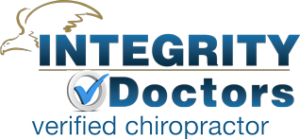More than 70 million Americans suffer from some form of sleep problem or wakefulness. 60% of those people endure a chronic sleep disorder with no available cure. Drugs become the treatment of choice for nearly nine million Americans who need help falling asleep or staying asleep every night. The problem with relying on drugs begins with enduring dangerous side effects and ends with the fact that drugs do not target or fix the cause of the sleep issue. Drugs cannot fix the problem and lure people into reliance upon long-term medication use.
The Center for Disease Control and Prevention (CDC) states that, “Sleep is increasingly recognized as important to public health, with sleep insufficiency linked to motor vehicle crashes, industrial disasters, and medical and other occupational errors. Persons experiencing sleep insufficiency are also more likely to suffer from chronic diseases such as hypertension, diabetes, depression, and obesity, as well as from cancer, increased mortality, and reduced quality of life and productivity.”
 Achieving a good night of sleep requires balance in the autonomic nervous system. The body manufactures specific hormones in order to facilitate both falling sleep and experiencing rest and healing. A great night of sleep becomes easier to achieve as sleep hormones become more balanced within the body. The autonomic nervous system controls vital involuntary functions like heartbeat, blood pressure, and breathing. Imbalances in the autonomic nervous system cause the majority of sleep deprivation issues.
Achieving a good night of sleep requires balance in the autonomic nervous system. The body manufactures specific hormones in order to facilitate both falling sleep and experiencing rest and healing. A great night of sleep becomes easier to achieve as sleep hormones become more balanced within the body. The autonomic nervous system controls vital involuntary functions like heartbeat, blood pressure, and breathing. Imbalances in the autonomic nervous system cause the majority of sleep deprivation issues.
Many unifying factors lead to a more balanced autonomic nervous system. A combination of eating well, moving the body, reducing emotional stress, and deep breathing all improve the sleep inducing environment. One major factor that contributes to sleeplessness often goes unaddressed or remains unknown to those who badly want to experience a quality sleep rhythm. Posture, bio-mechanical structure, and movement of the spine play a vital role in regulating hormone balance and fixing the problem that no drug or pill can resolve. The spine experiences an intimate connection to the autonomic nervous system through microscopic neurons and receptors densely populated in the small muscles, ligaments, and joints in and around the spine. These neurons communicate with the brain on a second-by-second basis for an entire lifetime. Altered autonomic nervous system balance results from abnormal movement or misalignment in a person’s spine and posture. Healing and rest become a major challenge when the body struggles to communicate.
Schedule an Appointment - We are here to help you!
Overland Park, KS Clinic
6701 W. 121st Street | Suite 200
Overland Park, KS 66209
913-643-1771
913-643-1775
Olathe, KS Clinic
10454 S. Ridgeview Rd.
Olathe, KS 66061
913-689-2333
913-689-2334
Prairie Village, KS Clinic
4121 W. 83rd St. | Suite 147
Prairie Village, KS 66208
913-490-4444
913-490-4445
Raytown, MO Clinic
10803 E State Rte 350 | Suite B
Raytown MO 64138
816-356-9313
816-425-2117
Lee's Summit, MO Clinic
338 Southwest Main St.
Lee's Summit, MO 64063
816-600-5483
816-524-5328
Belton/Raymore, MO Clinic
17027 Bel-Ray Blvd.
Belton, MO 64012
816-425-7015
816-425-2117
Blue Springs, MO Clinic
622 SW US 40 Hwy
Blue Springs, MO 64014
816-815-7007
816-815-7008
Liberty, MO Clinic
1520 N. Church Rd | Suite C
Liberty, MO 64068
816-831-3600
816-831-3601





